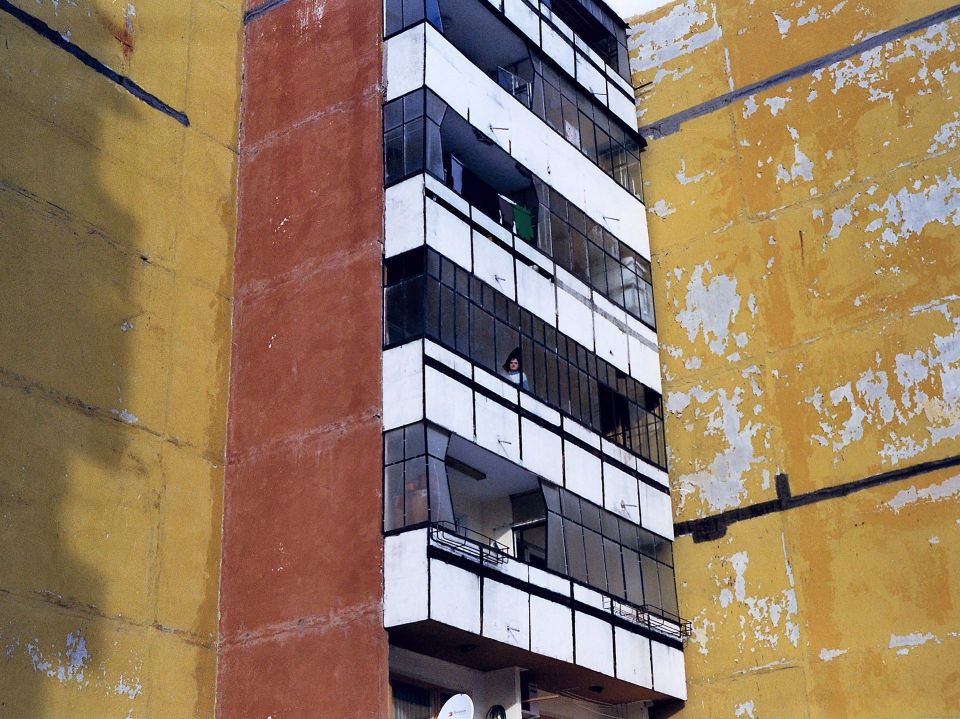Bulgaria, Film, 2019
Ralitza
Petrova

“He can be very difficult sometimes,” says a lover about Jürgen, a German living in London, who has a special reason for doing so. He wants to be near the Queen, since the Queen of England is his mother. Or at least, it is what Jürgen believes. When he was a little child, he was removed from the royal childbed and replaced by a baby that grew up to become the now renowned Prince Charles. Jürgen’s story sounds fanciful, but Ralitza Petrova’s short film By the Grace of God has its own logic. It is also an artistically complex portrait of a sensitive soul – a human caught between cultures and languages, between Beethoven and the Krautrock of Can, between past and future.
Ralitza Petrova graduated from the UK’s National Film and Television School (NFTS) in 2009 with her film By the Grace of God. Her films have won acclaim across the international film festival circuit, as well as at leading visual arts venues such as the Center Pompidou. With her debut feature film Bezbog (Godless, 2016), however, she returned to her native Bulgaria, in the north mountainous town of Vratsa, a remote place caught in a time warp.
A morphine-addicted, itinerant caregiver Gana is the weak link in a large organized fraud scheme, at the expense of the most vulnerable. Gana steals her patients’ ID cards, which are then sold on the black market of identity theft, to be used for illegal activities and transactions.
The “godless” in this world is the ultimate consequence of the post-communist era. The suffering of the elderly is the final toll of a ruthless, extremist twentieth century, whose history Petrova suggests has extended aftereffects: “the Germans were beautiful.” Fascism, communism, capitalism: these successive systems have left behind mostly desolation, brutality, and cynicism in the small Balkan country.
Petrova intensifies contrasts through the singing of an amateur orthodox choir, whose elderly conductor, a former survivor from the Bulgarian communist labour camps, Gana meets one day as part of her duty as a caregiver. An encounter, which ruptures her apathy for the first time. As both an allegorical assessment of a society and a concrete derivation of a legend the film’s title Godless is apropos.
Invariably, due to geographical proximity, Ralitza Petrova is frequently compared to the New Romanian Wave, and thematic and aesthetic similarities to films by Cristi Puiu or Cristian Mungiu indeed exist. But Godless is not only interested in realism, it goes beyond this: the director often references the hyperrealism of Robert Bresson, and his work with non-professional actors in particular: they serve him as “models.” While narrative cinema is mainly about psychological identification, Godless is situated within an alternative tradition, for which cinema is primarily a medium of worldviews, where morality, psychology, history, politics and transcendence are inextricably linked.
Biography
Ralitza Petrova studied film and video art at the University of the Arts London (UAL) and subsequently fiction directing at the UK’s National Film and Television School (NFTS). Her films have shown at major film festivals around the world, including Cannes, Berlin, and Locarno. In 2016, Godless premiered at the Locarno Film Festival, where it was awarded the Golden Leopard for Best Film. The film has received a total of twenty-seven major awards and was nominated for an European Discovery 2017 by the European Film Academy.
Petrova is a 2019 fellow of the DAAD Artists-in-Berlin Program, where she would be developing her next two feature film projects.
Text: Bert Rebhandl
Translation: Erik Smith
2007: Rotten Apple
(short film)
2009: By the Grace of God
(short film)
2016: Bezbog (Godless)
(feature film)
2019: Better Nature
(short film)



